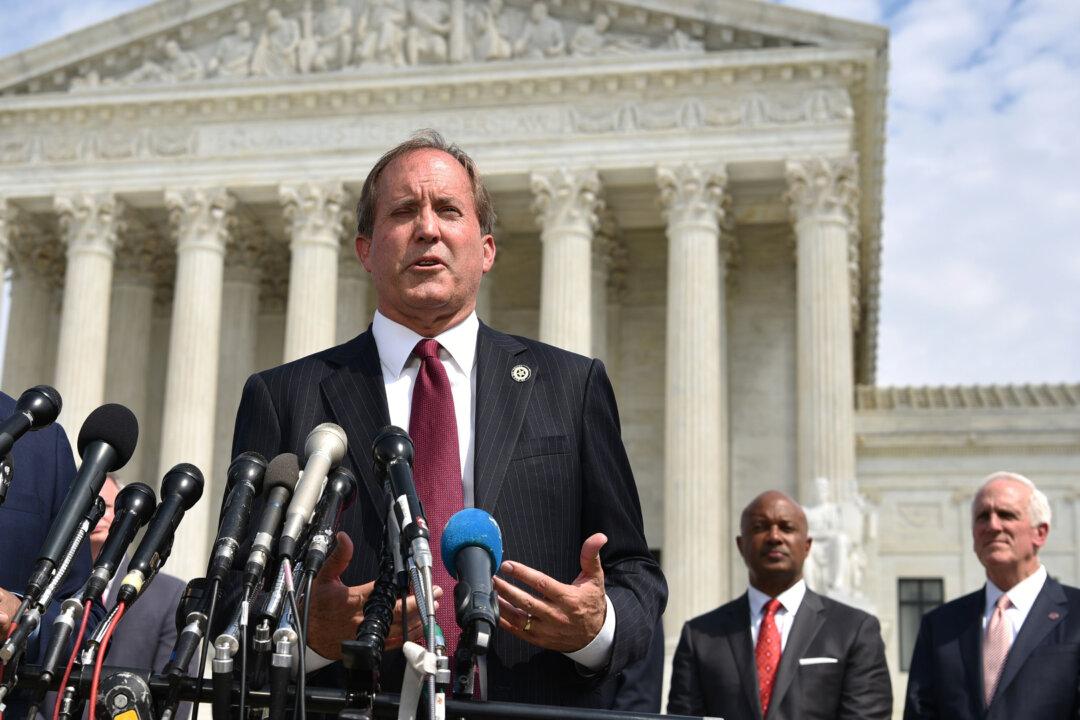Texas Attorney General Ken Paxton announced on Sept. 20 that he’s leading a coalition of 10 states in filing an amicus brief with the 11th Circuit Court of Appeals in support of Florida’s law that attempts to regulate censorship on Big Tech social media platforms.
Paxton signed on behalf of Texas, joining the states of Alabama, Alaska, Arizona, Arkansas, Kentucky, Mississippi, Missouri, Montana, and South Carolina who have also filed an amicus brief in support of Florida’s law.




